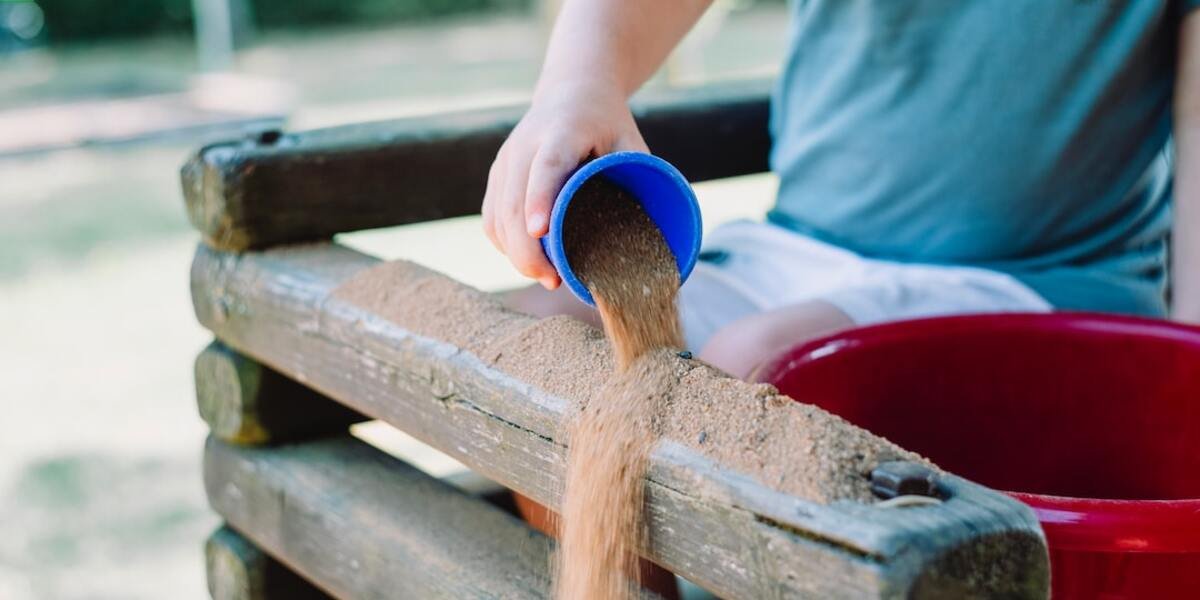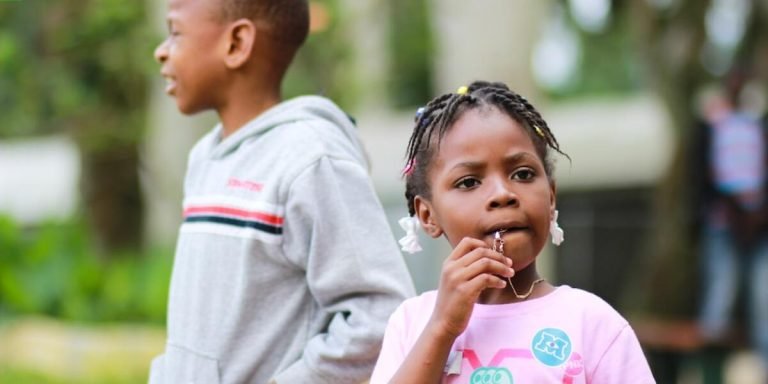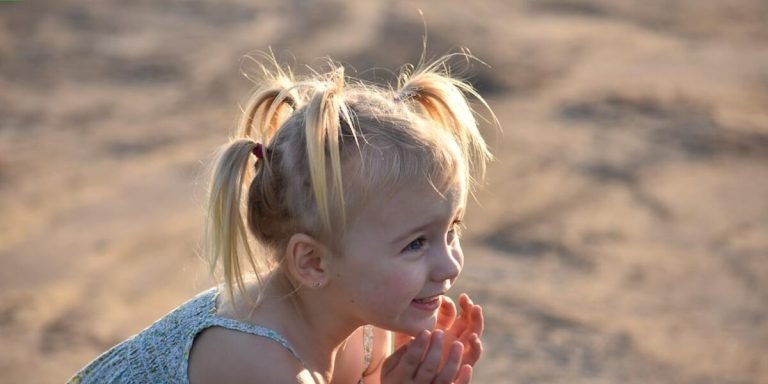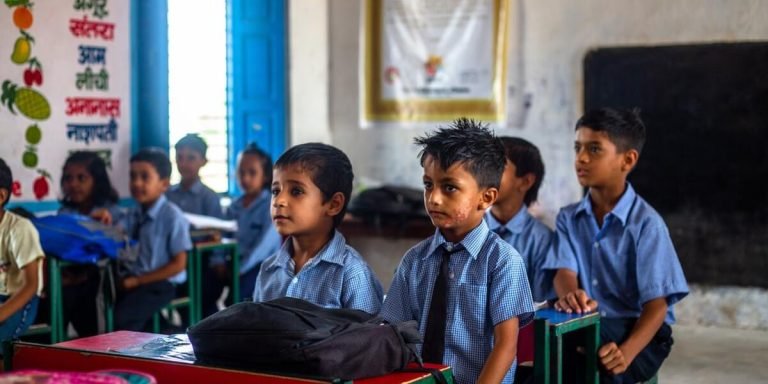American Montessori Society: Unfolding the Unique Education Methodology
The American Montessori Society (AMS) is the leading advocate and resource for quality Montessori education, an innovative method of learning developed by Dr. Maria Montessori. As a unique approach to early childhood education, it enables children not just to learn but also explore their own capabilities within supportive environments.
Given its diverse nature that fuses hands-on materials, child-centered activities and individualized progression into one winning formula – AMS’s role in promoting this pedagogy cannot be overstated. This blog post aims at shedding light on how the methodology adopted by the American Montessori Society continues transforming young minds across America.
Did you know?
Despite Montessori schooling being a worldwide phenomenon, it was in America that the first-ever Montessori teacher training program outside of Italy took place – in 1913 to be precise.
Understanding the American Montessori Society’s Approach in Early Childhood Education
The American Montessori Society (AMS) poised itself as a significant player in shaping early childhood education. Steeped in a rich tradition of fostering independence, AMS has continually accentuated the importance of providing children with an environment that encourages exploration and discovery.
Founded on deeply-rooted principles, this educational approach underscores respect for a child’s natural psychological development. The distinctive learning materials used within the society are developed keeping each stage of childhood growth intact – thus resonating with their guiding maxim “Follow the Child.” Allowing young learners to explore at their own pace nurtures confidence and cultivates lifelong self-directed learning habits.
Harnessing its holistic pedagogy towards practical skills, sensory-based learning, arts and culture – AMS delivers an enriching academic curriculum harmonized by equipping youngsters emotionally & socially well. Their commitment remains unwavered to effectuate transformative changes across diverse classrooms worldwide; thereby making ‘education’ not just about academics but also developing compassion, empathy & resilience- true markers of enriched adulthood ahead!
Key Principles of Montessori Methods for Young Learners
The American Montessori Society’s approach to early childhood education is built on several key principles tailored around children. These principles pave the way for individualized learning experiences that help young learners develop at their own pace.
Firstly, it emphasizes self-directed activity. The Montessori setting provides a prepared environment where children are encouraged to choose and work on activities of their interest. This ‘freedom within limits’ fosters independence and self-confidence in these individuals from an early age.
Secondly, hands-on learning takes precedence over traditional methods. Using specially designed teaching materials, students experience abstract concepts in tactile ways such as counting beads or using sandpaper letters for phonetics understanding- making learning more concrete and fun-filled!
Thirdly, through an uninterrupted block of working time, usually spanning 2-3 hours daily known as ‘work cycles’, this method appreciates each child’s unique rhythm of development without rushing them through educational milestones.
In addition to these core values offered by the American Montessori Society’s system towards early childhood education – respect between teachers and pupils; multi-age classroom structures; discovery-based lessons instead just receiving information passively—are also integral elements contributing towards shaping holistically educated youngsters who enjoy lifelong love for knowledge acquisition too!
The Role of Environment in Montessori Early Childhood Development
The American Montessori Society underscores the significant role that environment plays in a child’s learning and development. In this approach, “prepared environments” are devised to encourage curiosity and stimulate imagination.
Children learn best when they can actively engage and explore their surroundings – especially during early childhood years (ages 2-4). During these crucial formative years, having access to varied hands-on experiences aids significantly in shaping cognitive abilities.
Furthermore, outside-of-the-classroom environmental elements also play key roles within such exploratory learning curves under AMS’s guidelines: nature walks help instill love for outdoors; other sensory-based tasks teach regarding textures/temperatures/effects etc.; group interactions promote social-emotional growth through shared experiences and collaborative playtimes.
The Impact of American Montessori Society Accreditation on Quality Education
In the landscape of early childhood education, accreditation from a reputable institution such as the American Montessori Society (AMS) plays an undeniable role in guaranteeing quality. With its rigorous set of standards established over decades, this accreditation indicates that educators and institutes alike have committed to upholding Montessori principles at their finest.
The impact is evident not only on paper but also in practice. When schools carry AMS accreditation, it assures parents that their child’s educational journey aligns with Maria Montessori’s philosophy – promoting independent thinkers who love learning rather than viewing it as a chore. Moreover, these schools offer interactive environments where children learn by doing things themselves instead of being mere passive observers or theory absorbers.
This immersion into practical life stimulates cognitive development which goes hand-in-hand with their physical growth during crucial formative years. Apart from academics focused on individualized pacing and holistic lessons; emotional intelligence along with social skills are fostered too ensuring well-rounded personality development for each child under AMS guidance.
Benefits of AMS Accreditation for Early Learning Centers
The American Montessori Society (AMS) accreditation process is rigorous. It speaks volumes about the commitment of an early learning center and conveys its dedication to providing excellent education. The significant benefits that AMS Accreditation brings to Early Learning Centers include:
1. Assurance of Quality: First and foremost, having an AMS accreditation signifies high-quality educational standards. It assures parents and educators alike that the institution adheres to global Montessori principles in their authentic spirit.
2. Enhanced Reputation: In 2023’s competitive landscape where numerous preschools vie for attention, being accredited by the renowned American Montessori Society sets these institutions apart from others as it enhances credibility amongst prospective students’ families.
3. Continuous Improvement: The attractive aspect of this accreditation journey lies in fostering continuous improvement since periodic reviews ensure ongoing quality upkeep—keeping schools updated with evolving educational trends.
4.Implementation Of Best Practices: Throughout this scholarly voyage leading up to attaining AMS Accreditation, centres become well-versed in implementing best practices centered on student growth—an emphasis placed hugely by modern pedagogical methods now more than ever before!
How AMS Standards Shape Teaching Methodologies and Child Outcomes
The American Montessori Society (AMS) plays a pivotal role in defining the quality and impact of early childhood education. It sets rigorous standards, implemented across accredited institutions to ensure children receive high-quality educational experiences.
One key area influenced by these standards is teaching methodologies. The “american montessori society” accreditation requires educators to follow specific pedagogical principles designed around child-centric learning environments. These methods empower students with autonomy over their learning; fostering curiosity, creativity, and critical thinking skills necessary for future success.
For instance, AMS-accredited schools encourage ‘self-directed’ play which promotes independent decision-making among children at an early age. Also included are multi-age classrooms that foster peer-learning scenarios where younger kids learn from older ones – an approach elevating social interactions while nurturing leadership qualities among elder peers.
Moreover, hands-on activities form the crux of AMS-enabled curriculum allowing experiential knowledge acquisition – far more effective than rote memorization techniques used elsewhere.
In 2023’s context – amidst emerging digital distractions pulling away young learners’ attention spans – such engaging approaches become even more crucial in sustaining their scholastic interests ever stronger!
Moving on to Child outcomes- Accreditation aids not only academic performance but overall personal development too! Adhering strictly to stringent guidelines set by the “American Montessori Society”, several studies continue illustrating better emotional intelligence levels amongst those pupils partaking within its unique framework versus traditional schooling systems .
Comparing Traditional and American Montessori Educational Strategies in Early Years
Exploring the realm of early childhood education, we find an array of diverse teaching approaches. At the heart of our comparison are traditional educational strategies and those espoused by the American Montessori Society. Each possesses its unique advantages in fostering young minds’ development.
Traditional education has been a staple for many generations across America with emphasis on routine and structure. This method typically uses direct instruction where teachers impart predefined curriculum to all students uniformly, ensuring foundational knowledge is established at each grade level through repetition and practice activities like worksheets or quizzes.
In contrast, when stepping into one accredited by the American Montessori Society in 2023 that provides a uniquely individualized learning experience shaped around children’s interests and pace – it almost feels like walking into another dimension entirely! In these settings, kids discover their innate curiosity fueling self-driven exploration within carefully prepared environments housing age-specific materials designed to stimulate cognitive growth holistically.
To help identify which approach aligns best with your child’s needs entails understanding how both worlds – Traditional Education vis-a-vis The Montessori Method championed by AMS – operate under different philosophies yet aiming towards shared goal; enabling future adults equipped not just academically but also emotionally & socially ready for challenges they’d invariably encounter along life’s journey.
Differences Between Conventional Teaching and Montessori Practices
Conventional teaching, utilized in most traditional schools, follows a structured curriculum decided by educators higher up. Teachers guide students through a set learning path with predetermined milestones at each grade level. While efficient for standardization purposes, this approach might not cater to every student’s unique pace of learning or interest areas.
On the other hand, we have the Montessori method which was introduced by an Italian educator Maria Montessori over 100 years ago and has been growing steadily popular across American households – all thanks to institutions like The American Montessori Society that work tirelessly towards promoting this model of schooling.
In stark contrast with conventional techniques,the focus in any certified “American Montessori Society” school lies on fostering independent thinking in children right from their early years.
Unlike mainstream classrooms where teachers impart knowledge while students absorb it passively,a room filled with young minds practicing ‘Montessorian’ ideologies will be abuzz- kids moving around freely,everyone engrossed into different activities,yet everyone still mastering key concepts just as effectively as they would’ve under adult supervision,but without compromising on their natural curiosity.
Outcomes-Based Assessment: Evaluating Progress in a Montessori Setting
In examining the effectiveness of early childhood education methodologies, Outcomes-Based Assessment plays a pivotal role in evaluating progress within an American Montessori Society setting.
The approach used in an outcomes-based model differs greatly from conventional testing methods. Instead of assigning arbitrary grades or levels based on given tests and quizzes, child development is evaluated individually by observing learning milestones achieved over time. The focus here leans more toward practical skills acquisition rather than textbook memorization and regurgitation—a key tenet that separates it from traditional strategies.
For instance, if we break down literacy evaluation into simpler segments such as vocabulary prowess or reading comprehension—these assessment points give us a clearer picture about each student’s progress compared to standardized test scores alone. In doing so, educators can gauge where their students excel and areas needing further attention with greater precision.
When educating kids under six—the crucial developmental years according to renowned psychologist Jean Piaget—it becomes imperative for teachers to observe patterns beyond academic boundaries too like motor skills advancement or social interaction capabilities amongst peers. These indicators provide valuable insights regarding children’s overall cognitive progression which might otherwise overlook using regular methodology.
Conclusion
In the realm of childhood education, the American Montessori Society stands as a beacon that lights up unconventional yet effective learning techniques. The society underlines and pushes forward an educational method which defies orthodox teaching measures with its child-centered approach focussing on fostering natural interests and self-learning instincts in young minds.
We invite you to explore more such insightful resources for making your parenting journey or educator role smoother by diving deep into numerous other articles available at our website. Your quest to provide quality education doesn’t have to be an uphill battle when you are armed with knowledge about exceptional methods like those advanced by the American Montessori Society.







